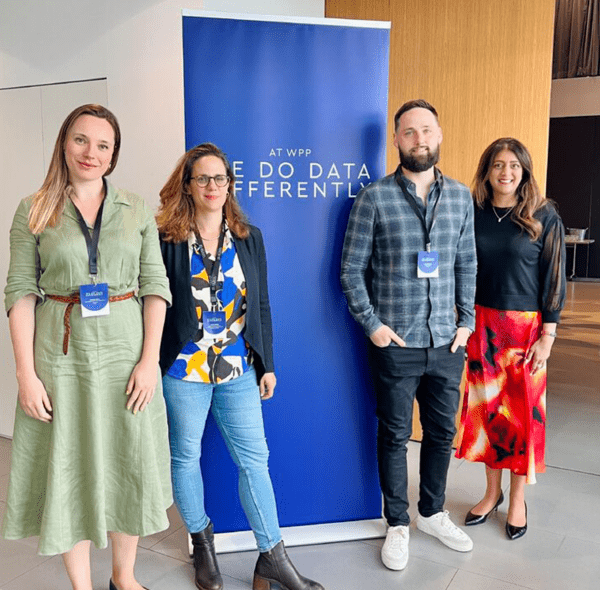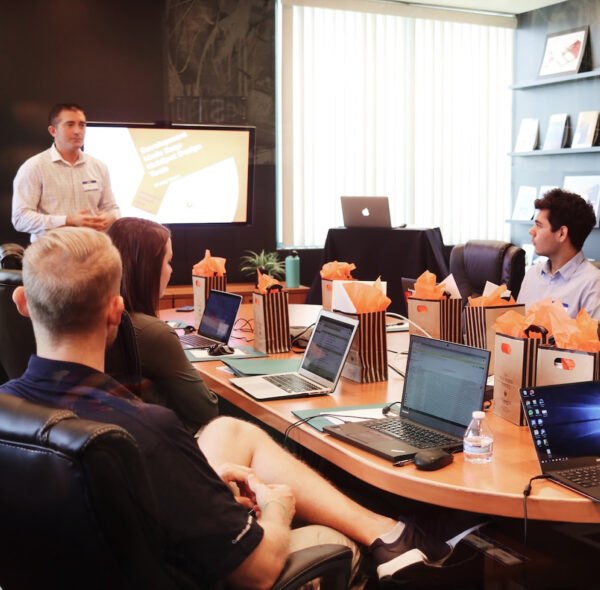Explore thought-provoking content, specialist reports, and illuminating interviews from the Gain Theory team.

Audience insights | 28 December 2023
What role can generative AI play in marketing effectiveness?
Read more
Latest articles
Gain Theory people | 27 March 2024Introducing… Patricia Moro, Director
Read more
Gain Theory people | 29 February 2024
Introducing… Arvind Sethumadhavan, Client Growth Officer, APAC
Read more
Advertising and media | 12 February 2024
How granular geographic data delivers privacy-compliant insights and improves effectiveness
Read more
Filter by topic

Gain Theory people | 27 March 2024
Introducing… Patricia Moro, Director
Read more

Gain Theory people | 29 February 2024
Introducing… Arvind Sethumadhavan, Client Growth Officer, APAC
Read more

Advertising and media | 12 February 2024
How granular geographic data delivers privacy-compliant insights and improves effectiveness
Read more

Data and analytics | 26 January 2024
Unlock growth in 2024 with a new marketing effectiveness framework
Read more

Gain Theory people | 26 January 2024
Introducing… Alan Bloodworth, EMEA & APAC CEO
Read more

Audience insights | 28 December 2023
What role can generative AI play in marketing effectiveness?
Read more

Foresight | 13 December 2023
How mastering the power of foresight helps marketers to plan more effectively
Read more

Gain Theory people | 8 December 2023
Introducing… Aleksandr Feygis, Partner
Read more

Gain Theory people | 3 November 2023
Introducing… Manjiry Tamhane, Global CEO
Read more

Gain Theory people | 20 September 2023
Introducing… Yulia Shutko, Partner
Read more

Data and analytics | 11 August 2023
Driving growth with data: How marketers can help brands to overcome the barriers
Read more

Gain Theory people | 29 June 2023
Introducing… Claudia Sestini, Global CMO
Read more

Marketing in uncertainty | 11 May 2023
How marketing can strengthen its alliance with finance
Read more

Gain Theory people | 27 April 2023
Introducing… Sam Fellows, Managing Partner
Read more

Gain Theory people | 3 April 2023
Introducing… Zosia Jakobek, Senior Director
Read more

Data and analytics | 16 March 2023
6 things marketers can do to boost effectiveness by being more data-driven
Read more

Gain Theory people | 7 March 2023
Introducing… Maria Fadeeva, Partner
Read more

Audience insights | 3 February 2023
3 ways marketers can combat uncertainty and build confidence
Read more

Gain Theory people | 27 January 2023
Introducing… Chris Chumun, Partner
Read more

Advertising and media | 11 January 2023
How long does it take for CPG advertising to pay back?
Read more

Gain Theory people | 15 December 2022
Introducing… Lindsay Egan, Senior Partner
Read more

Advertising and media | 29 November 2022
How proving effectiveness is helping one retailer to defend media budgets
Read more

Gain Theory people | 24 November 2022
Introducing… Akhila Venkitachalam, Senior Partner
Read more

Advertising and media | 24 October 2022
Meta research: why ads with multiple objectives are more effective
Read more

Gain Theory people | 13 October 2022
Introducing… Russell Nuzzo, Managing Partner
Read more

Audience insights | 11 October 2022
How near-time audience insights improve marketing effectiveness
Read more

Foresight | 10 October 2022
Proactive steps marketers can take to mitigate recessionary impacts on their brand
Read more

Data and analytics | 17 February 2022
How marketers can use foresight in a volatile, uncertain, complex and ambiguous world
Read more

Advertising and media | 23 April 2020
Marketing effectiveness in an uncertain world
Read more

Gain Theory research | 13 February 2020
9 Golden Rules for Measurement
Read more

Gain Theory research | 23 October 2019
CTRL+ALT+CHANGE: The Growth Opportunity
Read more

Brand | 9 April 2019
Brand vs performance spend: Where should the pendulum swing?
Read more

Gain Theory research | 11 October 2018
How to achieve best-in-class marketing effectiveness
Read more

Advertising and media | 15 April 2018
Five key results from our long-term impact of media investment study
Read more

Advertising and media | 1 December 2017
The long-term impacts of advertising: a first-of-its-kind study
Read more

Advertising and media | 29 March 2017
Long-term effects of advertising
Read more